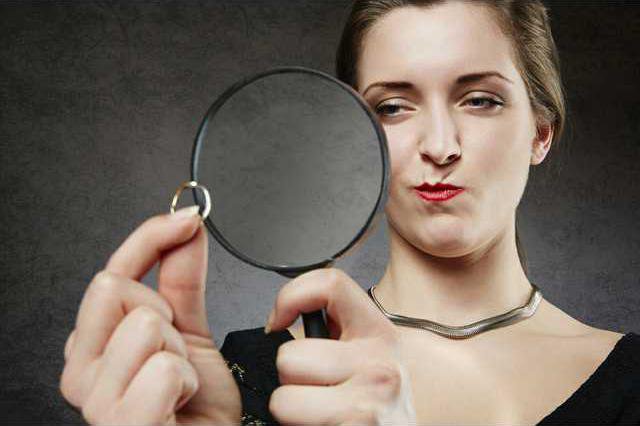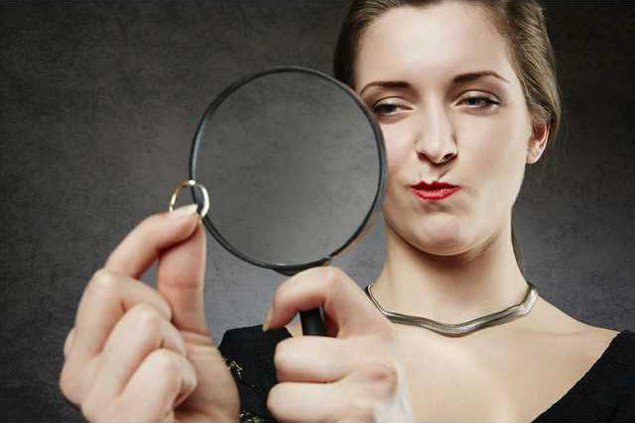I remember the first time my dad told me I should always find answers for myself instead of blindly following authority.
He wanted to know more about dinosaurs, so he checked out every book in the library on the topic. He read them all, then decided he didn't believe in prehistoric creatures (dinosaurs don't have hollow bones, he says, if fossils were real, he says, the bone marrow would be hollow).
He wanted to know more about the sun moving in the sky, so he placed a rock on the ground and tracked its shadow the revolution of the Earth checked out. I'm sure there were other experiments and inferences, each one influencing my father's belief system, which was shaped entirely by him, no matter how it differed from the majority viewpoint.
We've had several arguments about the news even when I was a reporter and how false it all is and you can't believe everything you read. In fact, if it was written in a newspaper, he probably believed the opposite, because he rejects conformity as a rule unless it is tested, that is, and he finds it to be true.
Consequently, I was raised to question authority.
There were times when, as a teenager, I was embarrassed to have a father who marched to the beat of his own drum. It was as if all of my teenage friends were peering into our kitchen on a Sunday afternoon, hearing our conversation of how dinosaurs aren't really real, and I was mortified. In reality, I'm sure they had no clue, and wouldn't have cared even if they did.
That's teenage paranoia for you.
Now that I'm an adult, I realize the example my dad set as ostentatious as it seemed to me as a child was actually a great gift. I felt free to choose my own path, as he did. Now we have different political viewpoints, different experiences and different opinions, but no discord. I felt free to question convention or choose conformity. It was my choice.
That said, my mom and dad somehow instilled some restraint in me. I always felt like a free agent, but never a radical.
My grandmother was a radical.
Fleeta, who died before I was born, was a woman filled with spirit. Her life as a professional nurse, mother of two and recipient of a master's degree was not dictated by the pull of society around her. If anything, it was in direct opposition. She let her own passion drive her.
She wasn't about to let arbitrary rules stop her from doing what she thought was right. She found a way.
That's how my dad's birthday disappeared.
Once upon a time, my dad was born on Nov. 6. He was a smart little boy, always curious and testing things to determine if they were true or not. He spoke well and read early and my grandmother was convinced that he was ready for school.
Unfortunately, the cutoff date for school enrollment was Nov. 1.
Conundrum.
I wonder how my grandmother approached this problem. Did she contact the school district and try to get an exception for my father? Was she told no? Or did her mind go straight to solving the problem on her own?
"What do they know?" I can imagine her saying to herself. "Five days won't make any difference. This is ridiculous."
And then she got an eyedropper, some bleach and my dad's birth certificate.
From that time on, my dad's birthday was Nov. 1.
They celebrated the day with cake and ice cream from that time on. They assimilated the change without missing a step. And at some point, my dad figured out that he had not one birthday, but two. What could be better?
Maybe that's one reason my dad always taught me to question everything, take nothing for granted.
He knew that nothing is ever set in stone not even your birthday.
He wanted to know more about dinosaurs, so he checked out every book in the library on the topic. He read them all, then decided he didn't believe in prehistoric creatures (dinosaurs don't have hollow bones, he says, if fossils were real, he says, the bone marrow would be hollow).
He wanted to know more about the sun moving in the sky, so he placed a rock on the ground and tracked its shadow the revolution of the Earth checked out. I'm sure there were other experiments and inferences, each one influencing my father's belief system, which was shaped entirely by him, no matter how it differed from the majority viewpoint.
We've had several arguments about the news even when I was a reporter and how false it all is and you can't believe everything you read. In fact, if it was written in a newspaper, he probably believed the opposite, because he rejects conformity as a rule unless it is tested, that is, and he finds it to be true.
Consequently, I was raised to question authority.
There were times when, as a teenager, I was embarrassed to have a father who marched to the beat of his own drum. It was as if all of my teenage friends were peering into our kitchen on a Sunday afternoon, hearing our conversation of how dinosaurs aren't really real, and I was mortified. In reality, I'm sure they had no clue, and wouldn't have cared even if they did.
That's teenage paranoia for you.
Now that I'm an adult, I realize the example my dad set as ostentatious as it seemed to me as a child was actually a great gift. I felt free to choose my own path, as he did. Now we have different political viewpoints, different experiences and different opinions, but no discord. I felt free to question convention or choose conformity. It was my choice.
That said, my mom and dad somehow instilled some restraint in me. I always felt like a free agent, but never a radical.
My grandmother was a radical.
Fleeta, who died before I was born, was a woman filled with spirit. Her life as a professional nurse, mother of two and recipient of a master's degree was not dictated by the pull of society around her. If anything, it was in direct opposition. She let her own passion drive her.
She wasn't about to let arbitrary rules stop her from doing what she thought was right. She found a way.
That's how my dad's birthday disappeared.
Once upon a time, my dad was born on Nov. 6. He was a smart little boy, always curious and testing things to determine if they were true or not. He spoke well and read early and my grandmother was convinced that he was ready for school.
Unfortunately, the cutoff date for school enrollment was Nov. 1.
Conundrum.
I wonder how my grandmother approached this problem. Did she contact the school district and try to get an exception for my father? Was she told no? Or did her mind go straight to solving the problem on her own?
"What do they know?" I can imagine her saying to herself. "Five days won't make any difference. This is ridiculous."
And then she got an eyedropper, some bleach and my dad's birth certificate.
From that time on, my dad's birthday was Nov. 1.
They celebrated the day with cake and ice cream from that time on. They assimilated the change without missing a step. And at some point, my dad figured out that he had not one birthday, but two. What could be better?
Maybe that's one reason my dad always taught me to question everything, take nothing for granted.
He knew that nothing is ever set in stone not even your birthday.








